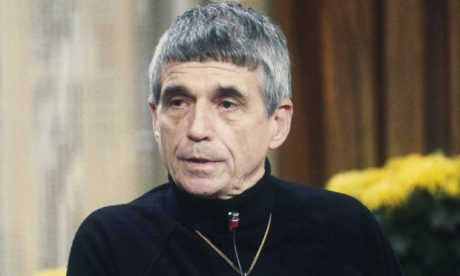Daniel Berrigan, a poet and Jesuit priest who for decades was among the most prominent voices for absolute pacifism in the American Catholic church, died on Saturday at 94.
The cause was a cardiovascular ailment, said Father James Yannarell, a priest affiliated with the Fordham Jesuit community.
Berrigan, who clashed with various American administrations, was fond of quoting a line from his brother, Philip, that “if enough Christians follow the Gospel, they can bring any state to its knees.”
Berrigan rose to fame during the Vietnam War, when he along with his brother Philip Berrigan, a Josephite priest, and seven others manufactured homemade napalm and used it to destroy 378 draft files in the parking lot of the Catonsville, Maryland draft board on May 17, 1968.
“Our apologies, good friends,” he wrote, “for the fracture of good order, the burning of paper instead of children, the angering of the orderlies in the front of the charnel house.
We could not, so help us God, do otherwise.”
Berrigan was sentenced to three years in prison for the “Catonsville Nine” episode, but went into hiding with help of fellow radicals before eventually being apprehended. He was released from prison in 1972.
Prior to the Catonsville action, Berrigan and his brother had been arrested for pouring blood on draft records in Baltimore. He later spent time in France meeting with Thích Nhất Hạnh, the exiled Vietnamese Buddhist monk and peace activist.
Berrigan traveled to Hanoi with the leftist historian Howard Zinn to bring back three American prisoners of war. He also aligned himself with Dorothy Day, the founder of the Catholic Worker movement.
In the 1980s, Berrigan and his associates became active in the anti-nuclear weapons movement.
In 1980, Daniel, his brother Philip, and six others broke onto the grounds of a General Electric nuclear weapons facility in King of Prussia, Pennsylvania, where they damaged warhead cones and poured blood onto files and records. Continue reading
Sources
- Crux
- Image: The Guardian
